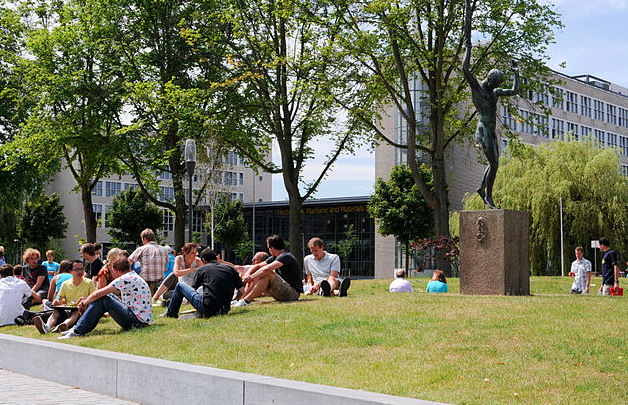Dry, warm weather expected to last at least two more weeks


Water conservation measures are starting to be imposed around the country as the warm, dry conditions are set to continue for another two weeks.
After a wet, cold winter, low rainfall in June has turned 2018 into one of the driest years on record. At a press conference on Wednesday KNMI meteorologist Edwin Büscher said there was little chance of significant rain until mid-July.
The dry weather is causing the most problems on high ground in eastern and southern regions. Farmers in parts of Gelderland, Utrecht and Noord-Brabant provinces have been told not to draw water from drainage ditches and canals.
In the Vinkeveense Plassen, near Utrecht, engineers have built a temporary weir to stop salt groundwater seeping into the freshwater reservoirs, which could potentially harm the natural environment.
Büscher said: ‘For the next nine or 10 days large parts of the country will see little or no rainfall.
‘That doesn’t detract from the fact that there is a chance of a heavy storm today or tomorrow, especially in Limburg. But this will be very localised and will not bring an end to the widespread drought.’
Despite the drought, the risk of water shortages is low, partly because temperatures have remained below 30 degrees. ‘The national picture is that our water reserves are looking fairly good,’ said Hans de Vries of water and highways agency Rijkswaterstaat. ‘The large lakes are well filled.’
However, the dry weather has increased the risk of bush fires, with small-scale fires already reported in Noord-Brabant, Overijssel and Limburg. In Hengelo a Chinook helicopter was called in to spray water over a rapidly spreading blaze at a waste processing plant.
The fire service has raised its alert level to the highest grade (level two) in parts of Zeeland, Noord-Brabant, Gelderland, Limburg, Utrecht, Noord-Holland and Friesland. Extra patrols will be carried out in country areas and more wells are being dug. The service is sending four fire engines rather than the usual one to call-outs for bush fires because the fires are likely to spread more quickly over dry ground.
A spokesman said people visiting parks and natural areas should take extra precautions not to start fires accidentally. ‘Don’t throw bottles away, for example – that can act as a fuse. And if you park your car in long grass the hot engine can start a fire.’
Thank you for donating to DutchNews.nl.
We could not provide the Dutch News service, and keep it free of charge, without the generous support of our readers. Your donations allow us to report on issues you tell us matter, and provide you with a summary of the most important Dutch news each day.
Make a donation